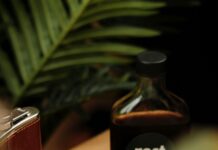Title: Simple Tips on How to Stay Hydrated all Day
Introduction
Staying properly hydrated is crucial for overall good health and well-being. Water is key in many functions of the body such as thermoregulation, digestion, and keeping your skin looking fresh. Many people suffer from lack of enough water intake throughout the day which leads to dehydration, fatigue and other health related issues. Luckily, there are a few simple methods that you can include in your daily activities to maintain the hydration of your body. Below are some simple ways to keep your body hydrated during the day:
1. Begin Your Morning with a Glass of Water
Get going by drinking a glass of water when you wake up every day. After sleeping all night long, your organism becomes dehydrated naturally so this allows for replenishment of fluids immediately after rise up thereby hydrating it again and initiating its metabolic activities once more. Keep an empty glass beside your bed so that it will be convenient to grab it when you wake up.
2. Carry around a Reusable Water Bottle
Buy a reusable bottle for water and have it with you wherever you go at any time. When there is water near you throughout the day, chances are high that you will take enough amounts of it on daily basis. Go for a bottle that suits you best in terms of carrying it either as stainless steel thermos or collapsible silicone bottles or BPA-free plastic ones if they seem convenient for use.
3. Don’t forget to take water in time.
Sometimes, life on the fast track makes us forget to drink a glass of water regularly. You should set reminders or employ an app that tracks hydration for you to sip water throughout the day. It is possible to have reminders every hour or so as this will help you keep your hydration goals.
4. Make Water Taste Good
If drinking plain water feels dull or boring, consider adding flavor to it for a more interesting experience. For example, add slices of lemon, mint leaves, cucumber slices or berries into your pitcher of water for an enjoyable twist. Additionally, there are electrolyte tablets and drops which can make your plain water taste better while giving back minerals lost through perspiration.
5. Foods with High Water Content
Apart from drinking fluids, one can increase body hydration by eating foods that contain large amounts of liquid. For example; oranges melon lettuce; strawberries and cucumbers are just some examples of fruits and vegetables that are very hydrating choices . These foods help hydrate and provide benefits like vital vitamins, minerals and antioxidants for general well-being
6. Water intake during meals
This one should be with you, drinking water in your meal is a good practice. While eating, sipping this type of liquid not only keeps you hydrated but also helps in the digestion process. When consuming large amounts of water during your meals, it can dilute the stomach acid and affect digestion. Instead, drink few drops at intervals while eating to remain hydrated without interfering with the food digestion.
7. Monitor urine color
One of the simplest ways to know if you are well hydrated or not is by checking your urine color. Your urine should ideally be pale yellow or straw-colored. Dark yellow or amber urine may indicate dehydration while clear urine could mean that you are taking too much fluid so adjust accordingly based on how much fluid you have taken.
8. Drink before being thirsty
Thirst is actually a late sign of dehydration therefore do not wait until thirst comes, then start taking water. Feeling thirsty means that your body has already started losing fluids though slightly dehydrated already.. Instead, make water consumption a habit by drinking regularly throughout the day even if you don’t feel like it . This helps to maintain optimal levels of hydration and prevent dehydration from occurring in advance.
9. Limit Fluids That Dehydrate.
For this reason, it is important to consume them in small amounts. Cut back on your consumption of drinks containing caffeine like tea, coffee and sodas since it acts as a diuretic leading to increased urine production that can cause dehydration. Alcohol also stands as a culprit because it dehydrates the body and impairs the ability to regulate fluid balance.
10. Adjust Your Fluid Intake Based on Activity Level
Therefore, fluid needs depend on factors such as weather patterns, physical exertion and general wellbeing among others. For instance, when the temperatures are high or you are involved in strenuous exercise, you may need to drink extra water to replace that lost through sweating. Pay attention to your body and increase liquid intake accordingly if you are sweating more than usual.
In conclusion,
Hydration is critical for health and well-being overall. Use these easy tips daily in order to make sure that you get enough water all day long: start with water in the morning; use reusable bottles or other means of carrying water everywhere; take breaks for drinking; add some flavoring into your drinks; eat fruits filled with water content; sip while eating meals; watch urine color; drink before thirst set in; limit dehydrating beverages only and adjust liquids based on activity level.


























